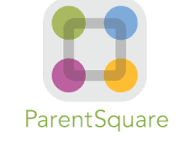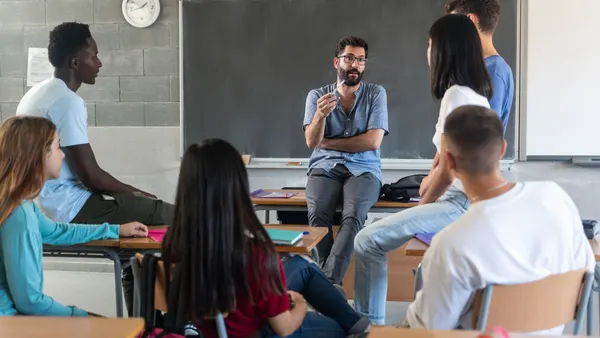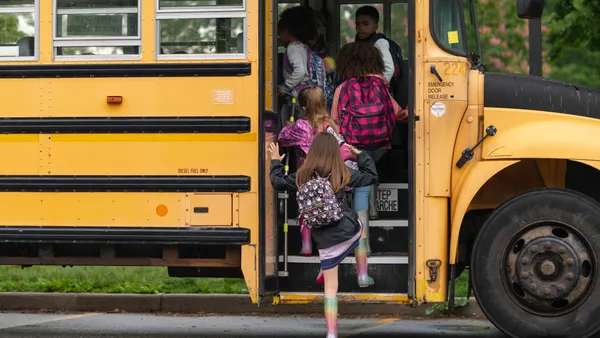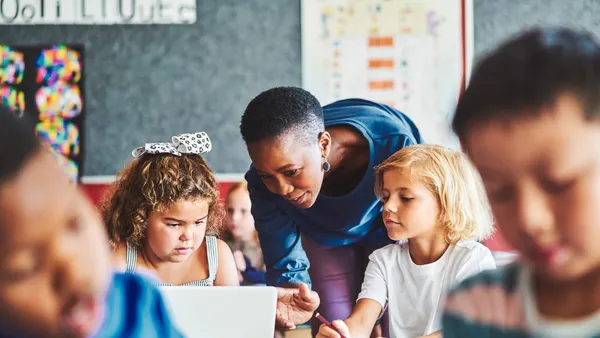Dive Brief:
- The newly pervasive omicron variant and continuing school staffing shortages are combining to wreak havoc on post-winter break school openings, with more than 1,500 schools closing for in-person learning on at least one day this week, according to a school opening tracker by Burbio, a technology company that tracks pandemic-related school disruptions.
- Even where schools have full-time in-person learning, complications are leading to some pauses in extracurricular and child care programming, concerning those who had hoped routine school activities would help alleviate learning loss and strengthen social-emotional skills.
- School systems' logistical changes come just one month after the Biden administration announced new efforts to keep schools open by promoting vaccinations. In U.S. Department of Education guidance posted Dec. 30, Education Secretary Miguel Cardona acknowledged the hardships on schools but said recommended mitigation strategies are "necessary to maintain our students’ health, safety and access to in-person learning."
Dive Insight:
In addition to COVID-19 concerns, health and school officials are worried about a resurgence in flu cases after last winter's almost nonexistent flu season. The Centers for Disease Control and Prevention has urged people to get a flu vaccination. People ages 5-24 account for the most flu cases so far this season, the agency said.
According to the American Academy of Pediatrics, the 325,340 child COVID-19 cases reported during the week of Dec. 23-30 represented 17.7% of all reported cases and were the highest weekly recorded cases for children since the pandemic began.
These health concerns, coupled with the growing recognition that face-to-face instruction is better for students has school administrators and staff making constant adjustments to keep kids learning.
Additionally, state and district school officials are trying to determine if and how to align their isolation and quarantine protocols with new CDC guidance that shortened durations for these periods.
Regarding school closures, some school districts, such as District of Columbia Public Schools and Maryland's Prince George's County Public Schools, had already prepared early January contingency plans, but others like Atlanta Public Schools and Detroit Public Schools made the call to go remote temporarily as the variant spiked during the 2021 holiday season.
New Jersey's Newark Board of Education has planned for remote learning through Jan. 14.
A conflict between the Chicago Teachers Union, which wants the 340,000-student Chicago Public Schools to move to remote learning, and the school system, which wants face-to-face instruction, led the system to announce there will be no in-person or remote learning today. CTU notes a number of fully vaccinated teachers are experiencing breakthrough coronavirus cases.
While some states like Massachusetts and Vermont are distributing at-home COVID-19 rapid tests for voluntary participation by staff or students, DCPS in Washington, D.C., is requiring negative COVID-19 rapid tests before students can come back to school buildings Thursday. Students there were supposed to return to campuses Wednesday, but the season's first snowfall delayed the distribution of test kits.
Mike Lubelfeld, superintendent of North Shore School District 112 in Highland Park, Illinois, said in-person school resumed as scheduled Monday, but the 3,800-student district had about 30 staff and 100 students absent due to COVID-19.
The areas of difficulty there, Lubelfeld said, are lack of staff for children in before- and after-school care and a shortage of experienced bus drivers leading to bus route delays.
Additionally, the district paused athletics for two weeks because of a scarcity of rapid antigen tests. The district had been testing its athletes weekly but is reserving its remaining 150 tests for symptomatic students and staff, he said.
Despite the challenges, Lubelfeld is grateful for the community's momentum to keep students safe and learning. The Lake County Health Department, for example, has worked closely with the school system to keep preschool classes open, he said.
Lubelfeld has also had daily calls with other area superintendents about what's working or not working in their districts and to share effective practices.
In addition, Lubelfeld added, he's proud of the collaboration among his district's nurses, teachers, support staff and administrators. "We've really all banded for an all hands on deck mentality to provide education with great stress and great challenge," he said.


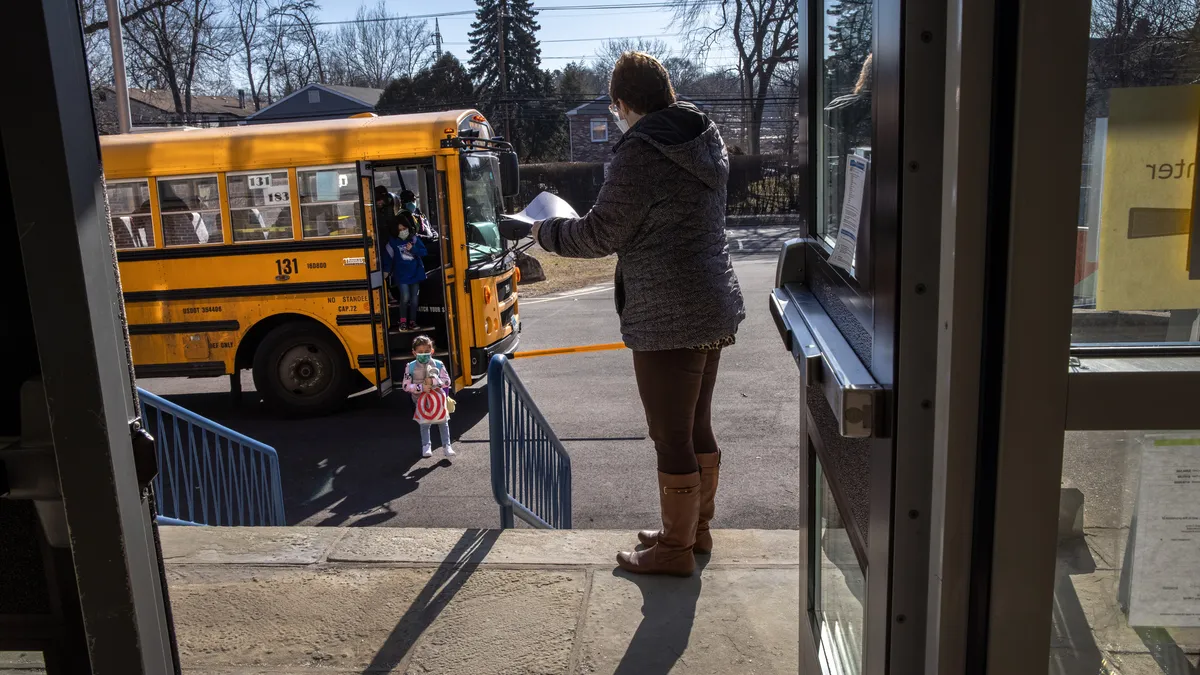



 Dive Awards
Dive Awards



